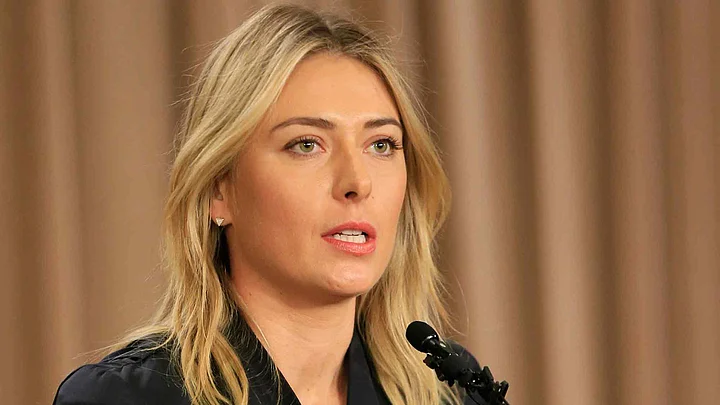A short notification from her PR company on Sunday informed the media that Maria Sharapova would be making “a major announcement” the next day in Los Angeles.
On Monday afternoon, what the 28-year-old stood in front of the packed hall and said, was nothing short.
World number 7 Maria Sharapova, a five-time Grand Slam Champion and the richest female athlete in the world - had failed a dope test at the 2016 Australian Open.
I made a huge mistake. I let my fans down and I let the sport down.Maria Sharapova
Out of action for over a month due to a forearm injury, the Russian 28-year-old said she had failed the test for using meldonium, something that she has been taking for the last 10 years due to health issues.
I was first given the substance back in 2006. I had several health issues going on at the time. I was getting sick very often and I had a deficiency in magnesium and a family history of diabetes. So, there were signs of diabetes. That is one of the medications, along with others, that I received.Maria Sharapova
An Honest Mistake?
Meldonium, which is used to treat diabetes and low magnesium was banned by the World Anti-Doping Agency in January this year.
Maria in fact is the seventh athlete in a month to test positive for the substance. Two Ukrainian biathletes and Russian cyclist Eduard Vorganov have failed the test. On Monday itself, Russia’s Ekaterina Bobrova, a European champion ice dancer, too admitted she had failed a test due to it.
Sharapova claimed she had simply failed to notice the addition of meldonium to the banned substance list.
I received an email on 22 December from Wada [World Anti-Doping Agency] about the changes happening to the banned list and you can see prohibited items, and I didn’t click on that link.Maria Sharapova
The former world number one last played a competitive match at the 2016 Australian Open where she lost to eventual finalist Serena Williams in the quarter-finals.
That very day, 26 January, is when she had submitted her drug-testing sample which eventually came out positive.
I know that with this, I face consequences and I don’t want to end my career this way. I really hope that I will be given another chance to play this game.Maria Sharpova
‘Provisionally Suspended’
Soon after Sharapova’s announcement, the International Tennis Federation’s anti-doping programme announced in a statement that Sharapova will be provisionally suspended starting 12 March while they examine her case.
WADA will refrain from commenting further until a decision has been issued by the ITF. Following that, WADA will review the reasons for the decision and subsequently decide whether or not to use its independent right of appeal to the Court of Arbitration for Sport.Ben Nichols, WADA Spokesman
Sharapova of course is not the first tennis player to return a positive dope test.
Croatia’s Marin Cilic was banned for nine months in 2013 for using a banned substance and Martina Hingis too retired after receiving a two-year suspension for a positive cocaine test in 2007.
The International Tennis Federation’s anti-doping guidelines usually call for a four-year suspension for a failed dope test but it can be reduced, based on the circumstances.
(At The Quint, we question everything. Play an active role in shaping our journalism by becoming a member today.)
